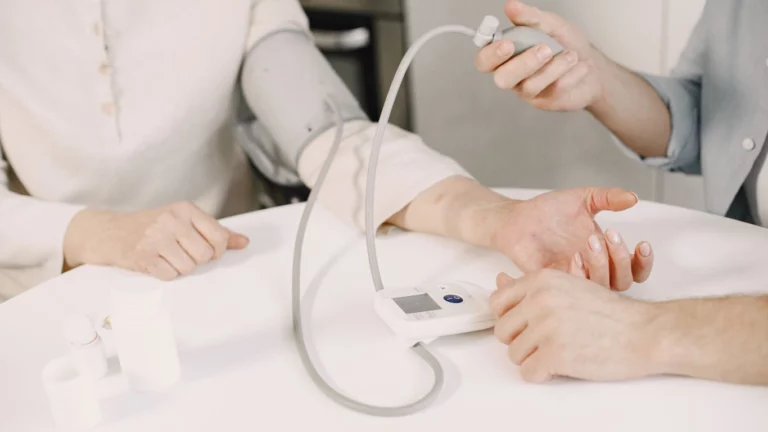Can Vinegar Trigger GERD Symptoms? Here’s What You Need to Know
If you’ve ever been hit with heartburn after indulging in that tangy vinaigrette or splash of apple cider vinegar, you’re not alone. Can vinegar trigger GERD symptoms? It’s a question I’ve come across quite a bit in my practice, especially since vinegar is a common ingredient in many diets, from salad dressings to detox drinks. But for some folks, vinegar is more than just a tasty addition—it’s a potential culprit behind their uncomfortable GERD (gastroesophageal reflux disease) flare-ups.
In this article, we’ll explore whether vinegar really has the power to wreak havoc on your digestive system, how it might cause problems, and what you can do about it. By the end, you’ll have a clearer picture of how this common kitchen ingredient could affect GERD symptoms and what you can try if you’re struggling.
What Exactly is GERD?

Before we get into the vinegar specifics, let’s take a quick refresher on GERD. GERD is a condition where acid from your stomach frequently leaks into your esophagus, causing symptoms like heartburn, regurgitation, chest pain, and difficulty swallowing. If you’ve been diagnosed with GERD, you know how tricky it can be to manage, and that certain foods and drinks can trigger these uncomfortable symptoms.
Common GERD Triggers
- Spicy foods
- Citrus fruits
- Chocolate
- Caffeine
- Tomato-based foods
- Fatty meals
And then, there’s vinegar. But why exactly does something as seemingly harmless as vinegar cause issues for some people with GERD?
Can Vinegar Trigger GERD Symptoms? The Link Explained

So, can vinegar trigger GERD symptoms? The short answer is—yes, it can. Here’s the deal: vinegar, especially in large quantities, is highly acidic. When you consume too much of it, this can increase the acid levels in your stomach, which might make its way into your esophagus. For someone with GERD, this can be problematic because it could trigger heartburn or make existing symptoms worse.
How Does Vinegar Cause GERD Problems?
- Acidity: Vinegar is acidic by nature, which might irritate the esophagus, especially in someone whose lower esophageal sphincter (LES)—the muscle that prevents acid from flowing back up—is weak or compromised. When vinegar relaxes the LES, it allows stomach acid to escape, leading to those nasty GERD symptoms.
- Increased Acid Production: Even though vinegar can seem soothing (like in those trendy apple cider vinegar detox drinks), it actually might stimulate your stomach to produce more acid. So, if you’re already prone to GERD, that extra acid might spill over into your esophagus.
- Citrus Element: Some vinegars, especially balsamic or certain flavored kinds, can have a citrusy undertone. Citrus is another common trigger for GERD, making vinegar a double whammy for some folks.
My Personal Experience with Vinegar and GERD

I get it—finding out that something like vinegar could make your GERD symptoms worse can be a little shocking, especially when it feels like a health trend. I’ve had several clients (and even friends!) tell me how they tried the apple cider vinegar detox cleanse, thinking it’d help with digestion, only to find themselves dealing with heartburn or acid reflux for days afterward.
One client of mine, Sarah, had been dealing with GERD for years. She swore by the apple cider vinegar shots every morning, thinking it was a miracle cure for digestion. But, after a few weeks, she noticed her heartburn got worse. After a quick chat about her routine, we realized that the daily vinegar dose might’ve been aggravating her symptoms. Once she cut back, she felt a lot better!
What to Do if Vinegar Triggers Your GERD Symptoms

If you’re wondering how to handle things when vinegar just doesn’t sit right with your stomach, here are some tips:
1. Moderation is Key
- If you’re really into vinegar and don’t want to give it up entirely, try cutting back. Use small amounts and see how your body reacts. A little vinegar on your salad or in a marinade might be less problematic than, say, an entire cup of apple cider vinegar for a drink.
2. Go for Low-Acidity Vinegar
- You don’t have to completely avoid vinegar; just pick your battles. Low-acid vinegar like rice vinegar or white wine vinegar might be a gentler option for GERD sufferers.
3. Avoid Drinking It Straight
- Many people make the mistake of drinking vinegar straight or in large doses (looking at you, detox fans!). If you’re using vinegar in cooking, that’s usually much easier on your digestive system. But consuming it in concentrated amounts? Not so much.
Key Takeaways
- Can vinegar trigger GERD symptoms? Yes, it can, especially in large quantities or if you’re particularly sensitive to acidic foods.
- Vinegar can increase acid production, relax the LES, and irritate the esophagus, which worsens GERD symptoms.
- To avoid issues, use vinegar in moderation, and choose low-acid varieties if possible.
FAQs About Vinegar and GERD
- 1. Is apple cider vinegar bad for GERD? Apple cider vinegar is often touted as a health miracle, but for people with GERD, its high acidity can trigger heartburn or worsen reflux symptoms.
- 2. Can I still use vinegar in my salad dressing? Absolutely! Just be mindful of the quantity. A little splash in your dressing should be fine for most people, but if you notice symptoms after eating it, try cutting back.
- 3. Can I drink apple cider vinegar for digestion if I have GERD? If you’re prone to GERD, it’s best to avoid drinking apple cider vinegar straight. Instead, consider using it in recipes or diluted with water in small amounts.
- 4. Does balsamic vinegar trigger GERD? Yes, balsamic vinegar can trigger GERD for some people due to its acidity and sometimes citrusy notes.
- 5. How can I tell if vinegar is triggering my GERD symptoms? Keep a food diary to track what you’re eating and when your GERD symptoms flare up. If vinegar seems to be the cause, it’s a good idea to reduce or eliminate it for a while.
So, if you’re wondering “Can vinegar trigger GERD symptoms?”, the answer is a definite “yes” for some people, but it’s not a one-size-fits-all scenario. It all depends on your body and how it handles acidic foods. Pay attention to your symptoms, and don’t be afraid to experiment with different types of vinegar or lessening your intake. As always, if you’re uncertain or struggling, don’t hesitate to chat with your doctor or a nutrition expert to find what works best for you.
Got any experiences with vinegar and GERD? Drop a comment—I’d love to hear how you’ve been managing!

Camellia Wulansari is a dedicated Medical Assistant at a local clinic and a passionate health writer at Healthusias.com. With years of hands-on experience in patient care and a deep interest in preventive medicine, she bridges the gap between clinical knowledge and accessible health information. Camellia specializes in writing about digestive health, chronic conditions like GERD and hypertension, respiratory issues, and autoimmune diseases, aiming to empower readers with practical, easy-to-understand insights. When she’s not assisting patients or writing, you’ll find her enjoying quiet mornings with coffee and a medical journal in hand—or jamming to her favorite metal band, Lamb of God.







